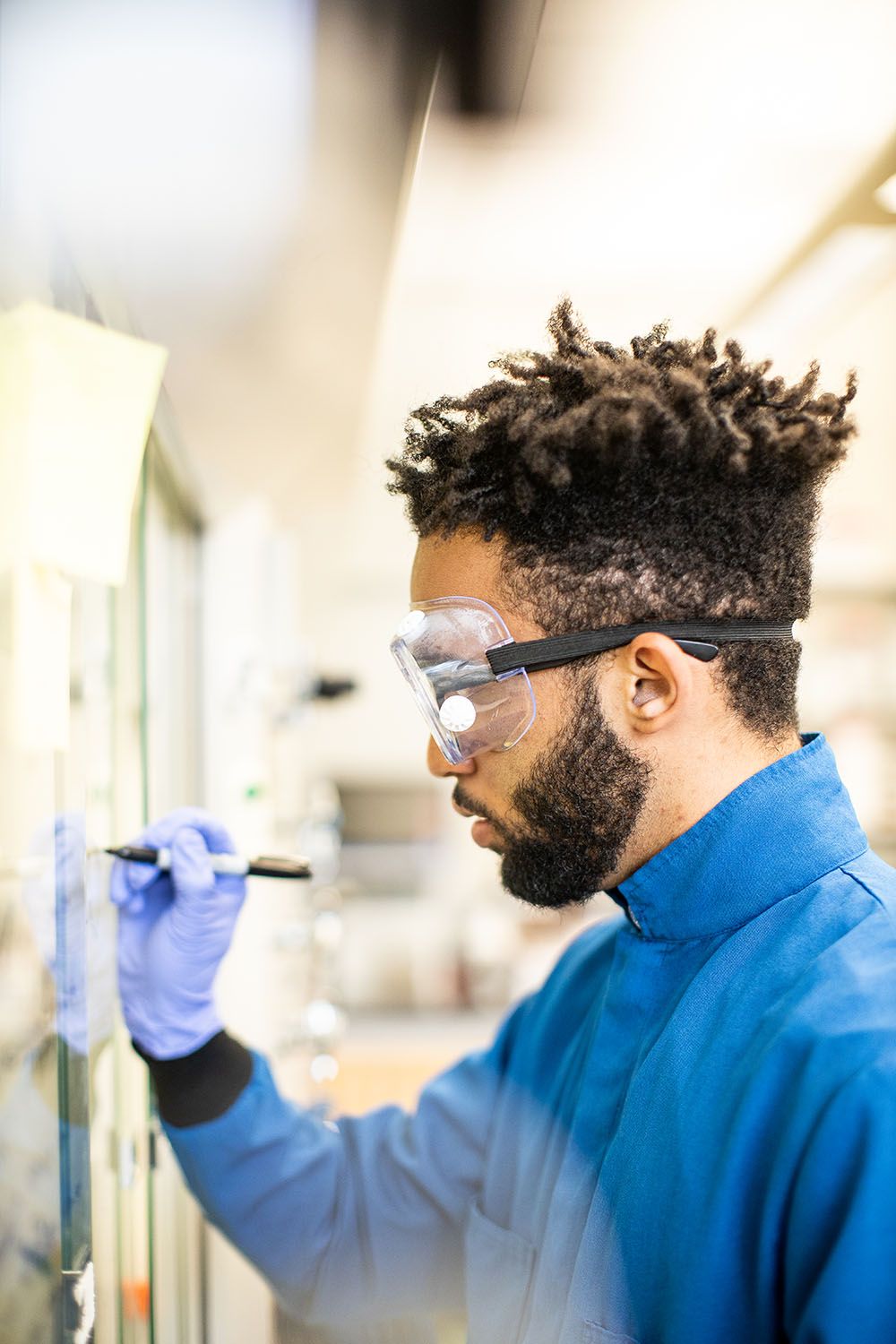Anthony Azzun
 Like a lot of honors students, Anthony Azzun had trouble settling on one major. A
talented singer and piano player, he was planning to major in music in college. But
he excelled in science classes as well. Raised by his grandparents, he said, “I had
a lot of exposure to hospitals, because they both had health complications.” Applying
to colleges is practically a full-time job for any high school senior, and especially
challenging for students like Anthony, who was the first in his family to go to a
university. “Most of my friends’ parents were egging them on and helping with applications.
It was frustrating, because I didn’t have those resources.
Like a lot of honors students, Anthony Azzun had trouble settling on one major. A
talented singer and piano player, he was planning to major in music in college. But
he excelled in science classes as well. Raised by his grandparents, he said, “I had
a lot of exposure to hospitals, because they both had health complications.” Applying
to colleges is practically a full-time job for any high school senior, and especially
challenging for students like Anthony, who was the first in his family to go to a
university. “Most of my friends’ parents were egging them on and helping with applications.
It was frustrating, because I didn’t have those resources.
“Your first year as a first-gen student, there’s a lot of anxiety, because you don’t know what to expect. Always reach out to other people, because there are others going through the same thing.”
An Honors College Fellowship brought Anthony to the University of Arkansas, where he overcame initial shyness by volunteering at a local organic farm and getting involved at Hotz Honors Hall. He began research in a chemistry lab his freshman year, and then experienced his first plane ride on the long-haul flight to Mozambique. There, he participated in the UA’s service learning program on a poultry farm and learned some important lessons in sustainable agriculture. Those experiences led him to his honors thesis, where he is working with chemistry professor Hassan Beyzavi to develop a catalyst that can convert nitrogen to ammonia, which is used in fertilizers. “The traditional method uses an iron catalyst that needs a lot of heat for the reaction to occur,” he said. “If we can lower the energy barrier for the reaction, it would be more sustainable.”
Anthony took full advantage of Honors College funding to study in Mexico, Belize, Peru, Spain and France, but one of his most important academic experiences happened closer to home. Health Coaches is a three-semester course sequence where students partner with professionals at Washington Regional Hospital to visit and assist patients with chronic health problems. When Anthony’s first patient died, it was a hard loss: “That’s the first time I felt that I really experienced medicine. I had to acknowledge both sides – the parts that make you feel good, and not so good, and see it for what it is.”
Thanks to a Fulbright Scholarship, Anthony will teach English in Andorra. Long-term, he plans to earn M.D. and Ph.D. degrees and become a research physician. “I’d like to investigate disease mechanisms, but also maintain patient contact.”